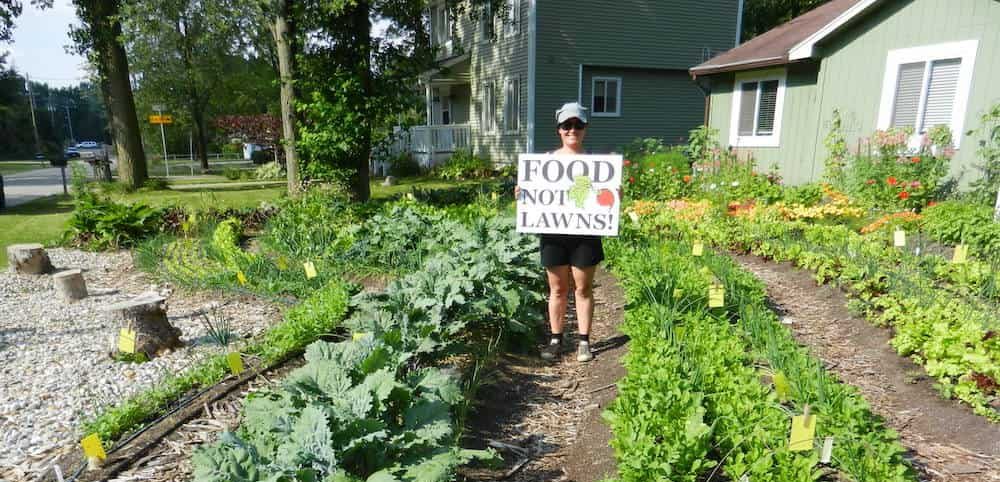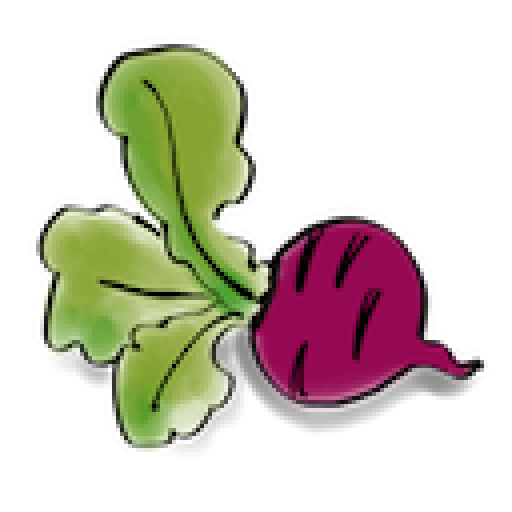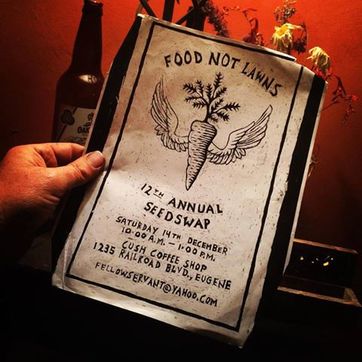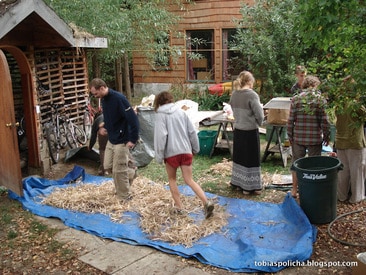Here’s an oldie but a goodie–a tour of the neighborhood where we FNL started! We turned dozens of lawns into gardens there:
The FNL Timeline
1996: Three of us rented a house in Eugene and started cooking for Food Not Bombs 5 days a week. Housed and fed the local Earth First! community and did a bunch of forest activism ourselves.
1999: Started our first garden, at a small plot behind a park in Eugene’s historic Whitaker neighborhood. Everybody got involved! Over the next several years, we built dozens of gorgeous gardens all over town, hosted weekly study groups, annual seed swaps (still going!) and a free community Permaculture Design Course (got a grant from the City of Eugene for that.)
2001: Launched our first website! It’s still up, and tons of fun to look at!
Lots of great articles there that are still relevant. Here are a few:
Avant Gardening for Fun and Nutrition (2000)
Biological Allies for the Urban Guerrilla (2000)
Guild it and They Will Come (2001)
Food Not Lawns! Can You Dig it? (2000)
Water, You Can’t Live Without It (2001)
Cities to Gardens (2001)
2006: Founding member Heather Flores wrote and published Food Not Lawns, How to Turn your Yard into a Garden and your Neighborhood into a Community, and from there, new local chapters starting popping up! Since then, Heather has traveled all over the US, helping new chapters get off the ground, hosting local seed swaps, and making tons of great friends!
Now, 2021: the Food Not Lawns movement has a life of its own, with autonomous chapters all over the world, and the original founders all have their own projects. We’re all still gardening, still saving seeds, and still organizing our local communities for mutual aid and all-species sustainability.

FNL founder Heather Jo Flores in her current front-yard garden in Andalucia.
Frequently Asked Questions About Food Not Lawns
Who is Food Not Lawns?
Food Not Lawns is an International network of gardeners and activists, sharing food, seeds, tools, land, skills and other resources with each other in neighborhood-based, friendship-driven communities. This website is maintained by Heather Jo Flores, who started Food Not Lawns in 1999 and wrote the book by that title in 2006.
I’m new to this, and removing my whole lawn at once seems daunting. What should I do first?
Start small, plant fruit trees and spread out from there. Plant things you love to eat. Collaborate with your neighbors to grow different crops and share them. It’s a lot less overwhelming when you’ve got a friendship-based community working together. I also recommend spending the money to hire someone to help you through the first few steps–tearing out the grass, turning the soil, design work. Most people wouldn’t consider putting in a new bathroom or fireplace without professional help, because they know that in the end the system is going to function much better after an expert has had their hand in it. Same goes for gardening. Let somebody help you, and place real value on that.
This sounds like it takes a lot of time/energy/money. Does it?
Well, maintaining a lawn also takes time, energy and money. Wouldn’t you rather spend that on something that improves the healthy and sustainability of your family and community?
I saw a Facebook page called “Grow Food Not Lawns.” Is that you guys?
Nope, it isn’t us, and we’re glad you asked. “Grow Food not Lawns” and “Grow Food Not Lawns Social Media Campaign” are scam pages, owned by an advertising company and filled with plagiarized material that was stolen from real writers, photographers and activists in the sustainability community. In 2012, “Grow Food Not Lawns” started their Facebook page without permission from or collaboration with Food Not Lawns. Although we attempted to work with that group to promote our mission we were unsuccessful. Food Not Lawns is in no way affiliated with this group and we do not condone the group’s use of our name to promote itself. We have gotten many letters of complaint from supporters who thought that was our page and objected to the content there. We apologize for your confusion and are doing our best to remedy the situation. Thanks and please support the Facebook page of the real Food Not Lawns, here.
Food Not Lawns seems like a great slogan for my t-shirts/stickers/TV show/magazine/landscaping business. Can I use it?
Sorry, no. Food Not Lawns is protected by International trademark law, and may not be used without written permission. The purpose of this is to protect the continuity and integrity of our organization, and the choice to trademark the name was made after someone almost took it away from us (see above.) We are an all-volunteer effort and we appreciate others not capitalizing on our hard work. Thank you for understanding.
A trademark? But isn’t Food Not Lawns a creative commons thing?
Well, since 1999 we have been circulating the meme via stickers, patches, writing, web and of course, the book. So, as it has filtered through into the mainstream…who is to say where they first saw or heard it? But ultimately, Food Not Lawns belongs to an International network of people who understand that it’s not just a slogan or a meme, it’s a way of life, a way of standing up for our rights and a road to freedom. It has gotten to the point where, if we, the founders, don’t trademark it, someone else will. And then none of the community groups could use it. That would be a real tragedy. Since we coined the term, wrote the book, and started the first chapter, we felt comfortable being the ones to steward the trademark. Please know that we have no intention of being a tyrant about it. The requirements for becoming a local chapter and using the name are really very simple and reasonable, and are designed to protect the integrity and continuity of our project. And because we respect the valuable and diverse projects across the breadth of the sustainability community, we ask that people using our name ALWAYS give credit where credit is due. If people are plagiarizing images and ideas under our name, then that sends a message of disrespect to the hard working people who actually did those projects. And that is when we will assert the rights associated with our legal trademark. We will also assert the trademark when people are using it to make money that does not directly benefit a local Food Not Lawns chapter.






